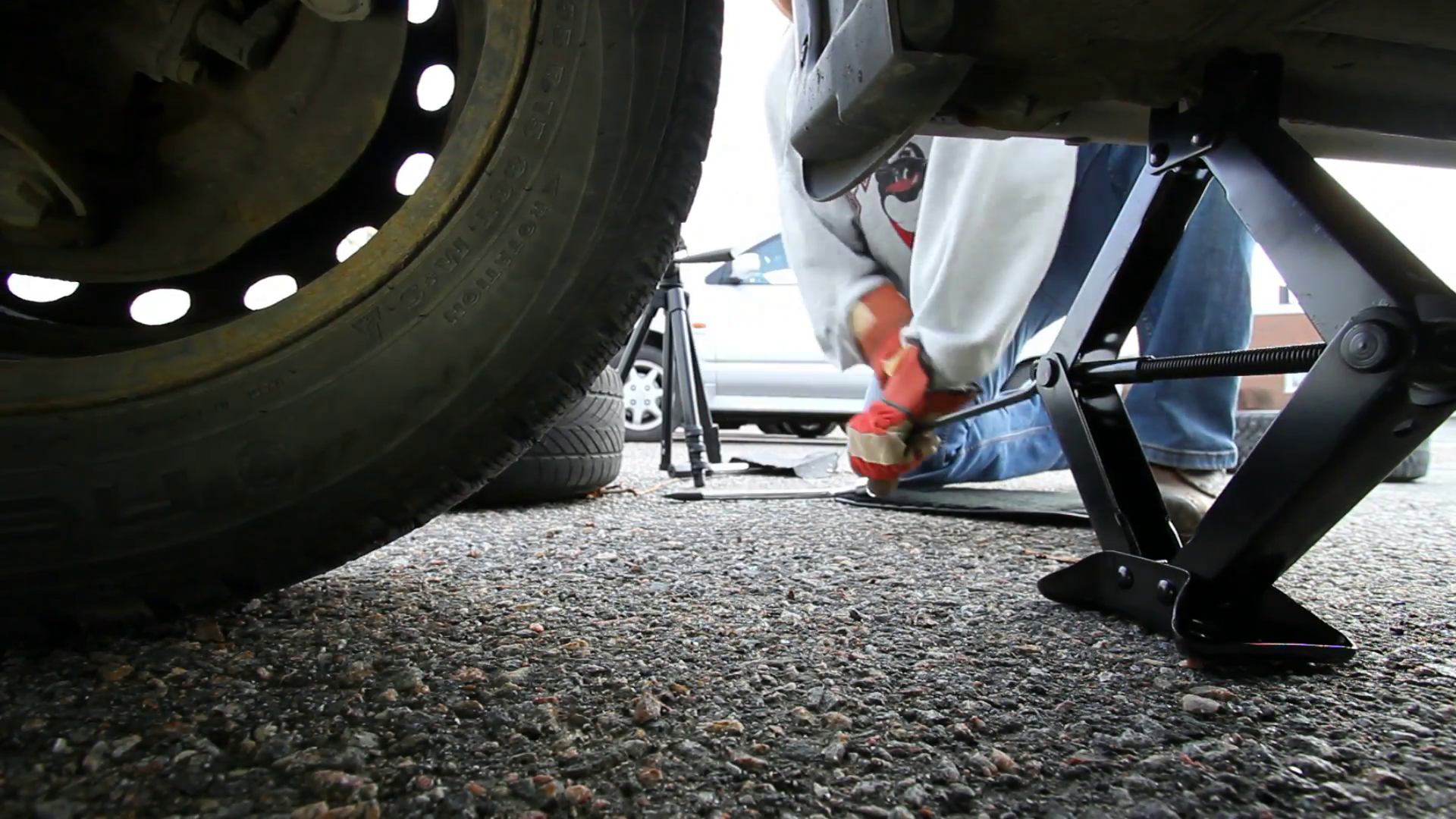Unless you’re a car fanatic or a mechanic, you probably haven’t given a lot of thought to your car jack. But if you ever find yourself stuck on the side of the road with a blown tyre and a three-hour wait for roadside assistance, you might wish you had. Having a good jack and jack stands is important, even if you only use it in emergencies. We’ll tell you how to determine what kind of jack is best for you and give a few recommendations. There are various types of jacks in the market today and each comes with its own capabilities, here are the ones you should look out for.
Scissor Jack

This is the most common type of jack that will work with just about any car. They’re simple to lift and often come stashed in the spare tyre compartment of new cars. Scissor jacks operate by turning a large screw, which causes the two sides to “scissor” together and raise the vehicle. They’re usually lightweight and compact, so they make great additions to emergency kits. Its large base gives you plenty of stability on less-than-ideal surfaces like the shoulder of roads. The jack also has a hefty 1.5-ton weight capacity and wide lift range. But it has it’s own disadvantage, the same large base that provides great stability can also make it tougher to store in small trunks. Sometimes the screw mechanism can jam and won’t always operate smoothly.
Bottle Jack

In terms of portability, bottle jacks are a step up from scissor jacks. The name comes from the shape of the hydraulic jack: it looks like a bottle. These jacks use a hydraulic mechanism to provide a lot of lift and require less effort to use. They can still be small enough to fit in your trunk, and are ideal if you have a larger vehicle like a truck or SUV. The downside of this type of jack is when it leaks, because it works with hydraulic pressure, when there’s leakage it becomes challenging to use or even dangerous because when faulty, it can drop a vehicle without notice so be careful.
Floor Jacks

These hydraulic jacks are often used in garages with jack stands. They have wheels for easy movement, since they tend to be pretty heavy and unwieldy. These jacks are workhorses, known for their durability and reliability. They also tend to be much more expensive than scissor or bottle jacks. You likely won’t need a floor jack unless you perform maintenance often and certainly you can’t put this in your trunk.
Regardless of which type of jack you choose, you want something well-made and durable. You don’t want the thing failing and dropping your car (yes, this can happen). For scissor jacks, check the screw mechanism and make sure it operates smoothly. If space is a concern, check the dimensions of the jack and make sure it will fit wherever you plan to store it.
Most importantly, you want to make sure the jack can lift your vehicle. Most jacks will work fine with most vehicles, but if your car sits particularly low or high or is very large (like bigger SUVs, trucks, and vans) you need to pay attention to the lift range or weight capacity of the jack and do some measuring. Make sure the car jack is rated for at least 75% of the vehicle’s weight. These figures are usually well-written on the jack when shopping for a new jack, so it should be easy to get the information you need.
Whether you’re a car enthusiast or you just need something to throw in the trunk for emergencies, one of these car jacks should have you covered.
 Spot Dem Everything About Cars
Spot Dem Everything About Cars




